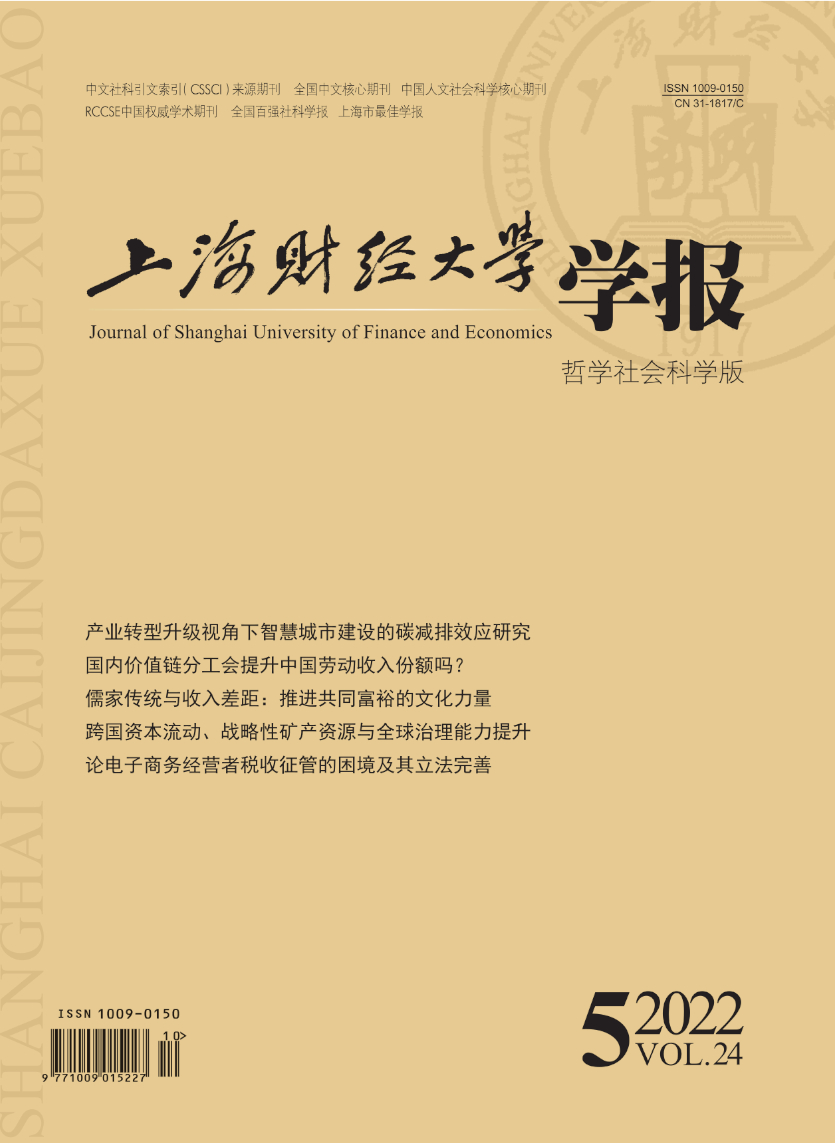In recent years, e-commerce in China has developed vigorously, bringing new opportunities to the economy and society. At the same time, affected by the virtuality, openness, and immediacy of e-commerce, Chinese traditional tax system elements and tax collection and management process is gradually disconnected from practice, and new legislations are urgently needed. In August 2018, the “E-commerce Law” was passed through deliberation and voting, and for the first time clearly stipulated that e-commerce operators are obliged to pay taxes according to law, and they should go through tax registration in a timely manner and truthfully declare and pay taxes during the establishment and operation process. However, in practice, tax authorities are often caught in predicament in the specific process of tax collection and administration. First, it is difficult to identify the taxable subject, and the daily civil behaviors of some operators on the platform are highly confused with commercial operations, making it difficult for tax authorities to monitor its tax sources. Second, in view of the lack of effective collection and management methods for e-commerce operators, the traditional collection and management model based on accounting books, business premises and invoice management cannot meet the actual collection and management needs of e-commerce. Third, it is difficult for tax authorities to conduct tax audits, and the traditional ex post tax audit has not been adapted to the new type of e-commerce with dynamic changes. Last but not the least, tax compliance in the field of e-commerce is week. Especially in the field of social e-commerce, the behavior of tax avoidance emerges in an endless stream, which eventually leads to the serious adverse consequences of tax loss in the field of e-commerce. This is related to the characteristics of the e-commerce itself, such as strong virtuality and ambiguous nature of transactions, but at the same time, the imperfection of the existing legal system for tax collection and management is also an important reason. In order to solve this predicament, the revision of the “Tax Collection and Administration Law” should focus on the following aspects: (1) Strengthen tax registration and tax source management, and give full play to the identification and positioning functions of taxpayer identification numbers. (2) Improve the sharing of tax-related information, and establish and improve the data sharing mechanism between tax authorities, government departments and the three parties. (3) Confirm the tax credit rating system, and promote the formation of a socialized supervision system. (4) Refine the regulations on tax violation liability, and balance the interests between platform operators and e-commerce operations. (5) Strengthen the inspection power of tax authorities, and urge the effective implementation of “information management taxation”. By strengthening tax authorities’ tax source management and collection and management services for e-commerce operators, the connection and application of the “E-commerce Law” and the “Tax Collection and Management Law” will be realized.
 / Journals / Journal of Shanghai University of Finance and Economics
/ Journals / Journal of Shanghai University of Finance and EconomicsJournal of Shanghai University of Finance and Economics
LiuYuanchun, Editor-in-Chief
ZhengChunrong, Vice Executive Editor-in-Chief
GuoChanglin YanJinqiang WangWenbin WuWenfang, Vice Editor-in-Chief
On the Predicament of Tax Collection and Management of E-commerce Operators and Their Legislative Perfection: Also on the Revision of the “Tax Collection and Administration Law”
Journal of Shanghai University of Finance and Economics Vol. 24, Issue 05, pp. 108 - 122 (2022) DOI:10.16538/j.cnki.jsufe.2022.05.008
Summary
References
Summary
Cite this article
Li Ciqiang. On the Predicament of Tax Collection and Management of E-commerce Operators and Their Legislative Perfection: Also on the Revision of the “Tax Collection and Administration Law”[J]. Journal of Shanghai University of Finance and Economics, 2022, 24(5): 108-122.
Export Citations as:
For




 4752
4752  9525
9525

